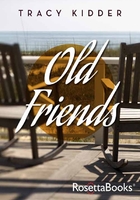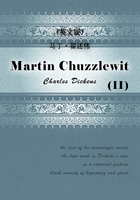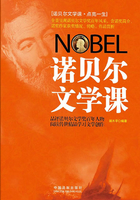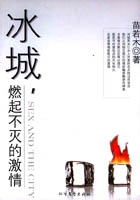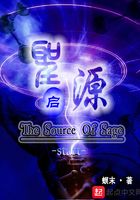When Iris became conscious, her sight returned, at first, in patches. She saw sections of faces floating in the air. It seemed the same face-sallow-skinned, with black eyes and bad teeth.
Gradually she realised that she was lying on a bench in a dark kind of shed while a ring of women surrounded her. They were of peasant type, with a racial resemblance, accentuated by inter-marriage.
They stared down at her with indifferent apathy, as though she were some street spectacle-a dying animal or a man in a fit. There was no trace of compassion in their blank faces, no glint of curiosity in their dull gaze. In their complete detachment they seemed devoid of the instincts of human humanity.
"Where am I?" she asked wildly.
A woman in a black overall suddenly broke into guttural speech, which conveyed no iota of meaning to Iris. She listened with the same helpless panic which had shaken her yesterday in the gorge. Actually the woman's face was so close that she could see the pits in her skin and the hairs sprouting inside her nostrils; yet their fundamental cleavage was so complete that they might have been standing on different planets.
She wanted some one to lighten her darkness-to raise the veil which baffled her and blinded her. Something had happened to her of which she had no knowledge.
Her need was beyond the scope of crude pantomime. Only some lucid explanation could clear the confusion of her senses. In that moment she thought of the people at the hotel, from whom she had practically ran away. Now she felt she would give years of her life to see the strong saintly face of the clergyman looking down at her, or meet the kind eyes of his wife.
In an effort to grip reality she looked round her. The place was vaguely familiar, with dark wooden walls and a sanded floor, which served as a communal spittoon. A bar of dusty sunlight, slanting through a narrow window, glinted on thick glasses stacked upon a shelf and on a sheaf of fluttering handbills.
She raised her head higher and felt a throb of dull pain, followed by a rush of dizziness. For a moment she thought she was going to be sick; but the next second nausea was overpowered by a shock of memory.
This was the waiting-room at the station. She had lingered here only yesterday, with the crowd, as it gulped down a final drink. Like jolting trucks banging through her brain her thoughts were linked together by the connecting sequence of the railway. She remembered sitting on the platform, in the sunshine, while she waited for a train.
Her heart began to knock violently. She was on her way back to England. Yet she had not the least idea as to what had happened after her black-out, or how long ago it had occurred. The express might have come-and gone-leaving her behind.
In her overwrought state the idea seemed the ultimate catastrophe. Her head swam again and she had to wait for a mist to clear from her eyes before she could read the figures on her tiny wrist watch.
To her joy she discovered that she had still twenty-five minutes in which to pull herself together before her journey.
"What happened to me?" she wondered. "What made me pass out? Was I attacked."
Closing her eyes, she tried desperately to clear her brain. But her last conscious moment held only a memory of blue sky and grass-green lake, viewed as though through a crystal.
Suddenly she remembered her bag and groped to find it. To her dismay it was not beside her, nor could she see it anywhere on the bench. Her suitcase lay on the floor, and her hat had been placed on top of it, as though to prove the limit of her possessions.
"My bag," she screamed, wild-eyed with panic. "Where's my bag?"
It held not only her money and tickets, but her passport. Without it, it was impossible for her to continue her journey. Even if she boarded the train, penniless, she would be turned back at the first frontier.
The thought drove her frantic. She felt sure that these staring women had combined to rob her when she was helpless and at their mercy. When she sprang from the bench they pulled her down again.
The blood rushed to her head and she resisted them fiercely. As she struggled she was conscious of a whirl of confusion-of throbbing pain, rising voices, and lights flashing before her eyes. There were breathless panting noises, as an undercurrent to a strange rushing sound, as though an imprisoned fountain had suddenly burst through the ground.
In spite of her efforts, the woman in the black pinafore dragged her down again, while a fat girl, in a bursting bodice, held a glass to her lips. When she refused to swallow they treated her like a child, tilting her chin and pouring the spirit down her throat.
It made her cough and gasp, until her head seemed to be swelling with pain. Terrified by this threat of another attack, she relaxed in helpless misery. Her instinct warned her that, if she grew excited, at any moment, the walls might rock-like the snow-mountains-as a prelude to total extinction.
Next time she might not wake up. Besides, she dared not risk being ill in the village, alone, and so far away from her friends. If she returned to the hotel she could enlist the financial help of the English visitors, while, doubtless, another passport could be procured; but it meant delay.
In addition, these people were all strangers to her, whose holiday was nearly ended. In another day they would be gone, while she might be stranded there, indefinitely, exposed to indifference, and even neglect. The hotel, too, was closing down almost immediately.
"I mustn't be ill," thought Iris. "I must get away at once, while there is still time."
She felt sure that, if she could board the train, the mere knowledge that she was rolling, mile by mile, back to civilisation, would brace her to hold out until she reached some familiar place. She thought of Basle on the milky-jade Rhine, with its excellent hotels where English was spoken and where she could be ill, intelligibly, and with dignity.
Everything hung upon the catching of this train. The issue at stake made her suddenly desperate to find her bag. She was struggling to rise again, when she became conscious that some one was trying to establish contact with her.
It was an old man in a dirty blouse, with a gnarled elfin face-brown and lined as the scar on a tree-trunk, from which a branch had been lopped. He kept taking off his greasy hat and pointing, first upwards, and then to her head.
All at once she grasped his meaning. He was telling her that while she sat on the platform she had been attacked with sunstroke.
The explanation was a great relief, because she was both frightened and baffled by the mystery of her illness. She rarely ailed and had never fainted before. Besides, it had given her proof, that in spite of her own misgiving, the channels were not entirely blocked, provided the issues were not too involved.
Although she still felt sick with anxiety about her train, she managed to smile faintly at the porter. As though he had been waiting for some sign of encouragement, he thrust his hand into the neck of his dirty blouse and drew out her bag.
With a cry, she snatched it from him. Remembering the crowd on the platform, she had no hope of finding her money; but there was a faint chance that her passport had not been stolen.
She tore at the zipp-fastener with shaking fingers, to find, to her utter amazement, that the contents were intact. Tickets, money, passport-even her receipted hotel-bill, were still there.
She had grossly maligned the native honesty, and she hastened to make amends. Here, at last, was a situation she understood. As usual, some one had come to her rescue, true to the tradition of the protective square in her palm. Her part, which was merely to overpay for services rendered, was easy.
The women received their share of the windfall with stolid faces. Apparently they were too stunned with astonishment to show excitement or gratitude. The old porter, on the other hand, beamed triumphantly and gripped Iris' suitcase, to show that he, too, had grasped the situation.
In spite of her resistance to it, the raw spirit, together with her change of circumstance, had revived Iris considerably. She felt practically restored again and mistress of herself as she showed her ticket to the porter.
The effect on him was electric. He yammered with excitement, as he grabbed her arm and rushed with her to the door. Directly they had passed through it, Iris understood the origin of the curious pervading noise which had helped to complicate her nightmare.
It was the gush of steam escaping from an engine. While she had let the precious minutes slip by, the express had entered the station.
Now it was on the point of departure.
The platform was a scene of wild confusion. Doors were being slammed. People were shouting farewells and crowding before the carriages. An official waved a flag and the whistle shrilled.
They were one minute too late. Iris realised the fact that she was beaten, just as the porter-metaphorically-snatched at the psychological moment, and was swung away with it on its flight. He took advantage of the brief interval between the first jerk of the engine and the revolution of the wheels, to charge the crowd, like an aged tiger. There was still strength and agility in his sinewy old frame to enable him to reach the nearest carriage and wrench open the door.
His entrance was disputed by a majestic lady in black. She was a personage to whom-as a peasant-his bones instinctively cringed. On the other hand, his patron had paid him a sum far in excess of what he earned in tips during the whole of a brief season.
Therefore, his patron must have her place. Ducking under the august lady's arm, he hurled Iris' suitcase into the compartment and dragged her inside after it.
The carriage was moving when he scrambled out, to fall in a heap on the platform. He was unhurt, however, for when she looked back to wave her thanks, he grinned at her like a toothless gnome.
Already he was yards behind. The station slid by, and the lake began to lap against the piles of the rough landing-stage. It rippled past the window in a sheet of emerald, ruffled by the breeze and burnished by the sun. As the train swung round the curve of the rails to the cutting in the rocks, Iris looked back for a last view of the village-a fantastic huddle of coloured toy-buildings, perched on the green shelf of the valley.


